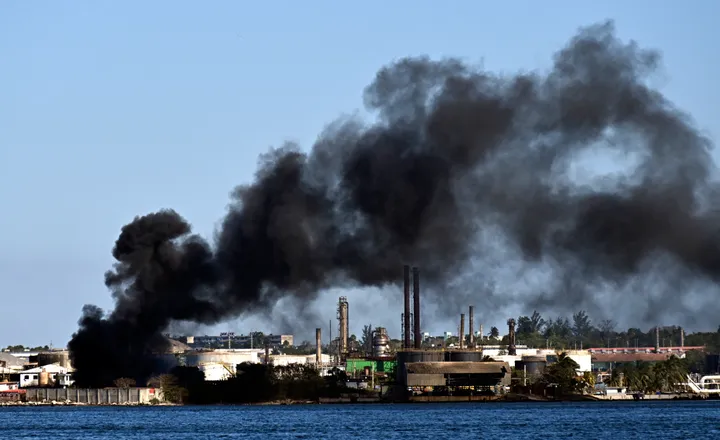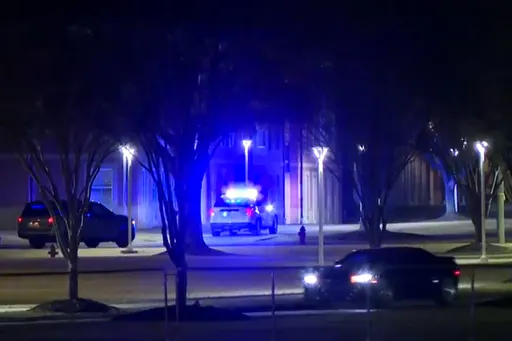The Democratic Party in the United States is at a crossroads. As it haemorrhages support from Arab and Muslim Americans and young people over its support of Israel’s war on Gaza, many leaders have been downplaying the threat to US President Joe Biden’s re-election campaign.
The argument goes that Muslims and Arabs comprise too small of a portion of the electorate to be concerned about. And that young people tend to vote at much lower levels than other age groups, so why cater to them and risk alienating older Americans who reliably vote at a higher rate?
There is, however, one constituency whose eroding support Democrats simply cannot afford to take for granted: Black Americans.
The makeup of the Democratic electorate, in general, and Biden’s base of support in particular underscores the party’s dependency on voters of colour.
In the 2020 general election, only about 60 percent of Biden voters were white, compared to over 85 percent for Trump. Biden likely would not have even been his party’s nominee were it not for Black voters resurrecting his campaign in the South Carolina primary earlier that year.
These same voters are not viewing the prospect of a second Biden term in office with renewed enthusiasm. Biden’s favorability among non-white voters was already waning long before Oct. 7, in part because the administration was not keeping its campaign promises to meaningfully address issues like police reform, criminal justice reform, and voting rights.
But recent polling suggests that Gaza is also playing a meaningful role in Black voters’ cooling feelings about Biden.
At the end of August 2023, the Public Religion Research Institute found that 77 percent of Black Americans would vote for Biden in a head-to-head matchup with Trump. This was already a 15 percent decline in the support he received from these voters in 2020.
By late November, however, Genforward found that only 63 percent of Black Americans planned to vote for Biden. Similarly, an NBC poll fielded around the same period found that only 61 percent of this bloc approved of Biden’s job performance.
While these polls are merely suggestive, other factors speak directly to the effect that the conflict in Gaza is having on support for Biden within the Black community. Indicators at the elite, civil society and general level all point to growing anger over Biden’s enabling of Israel’s plausible genocide.
The most striking condemnation of Biden’s policy comes from the more than 1,000 Black pastors that are pressuring the administration to call for a ceasefire. More recently, leaders of the African Methodist Episcopal Church went even further, calling for the end of US aid to Israel.
Activist groups like Black Lives Matter have also made their position clear. In fact, long before the most recent conflagration in Gaza, the Movement for Black Lives overlapped and intersected with the Palestinian liberation movement. As one BLM organiser speaking on this shared struggle put it: “We know occupation, we know colonisation, we know police brutality.”
But it is not just the most attentive who are voicing their dissent. A major New York TImes/Sienna poll in December found that Black Americans were more likely than whites and Hispanics to sympathise with Palestinians over Israelis.
Moreover, in crucial swing state Michigan, a December poll found that more than 60 percent of Black Detroiters supported a permanent ceasefire in Gaza - and that was in a poll fielded over two months and 10,000 deaths ago.
Of course, no one who knows the history of Black activism in America should be surprised about the solidarity being shown toward Gaza today.
Back in 1964, for instance, Malcolm X advocated at a meeting of the Organization of African Unity for “the right of the Arab refugees to return to their Palestine homeland.” Just a few years later, the Black Panther Party stated concisely that they “support the Palestinians’ just struggle for liberation one hundred percent.”
To be sure, Black Americans were not then (nor are they now) wholly aligned with the Palestinian cause. Both historically and more recently, attitudes towards Israel-Palestine are complicated by the longstanding ties between Jewish and African American activists.
This ambivalence is unlikely to linger in the medium- to long-term, however. Black, indigenous and other communities, particularly millennials and Gen-Zers, are already more pronounced in their criticism of US policies toward Israel and the Palestinians. Moreover, these attitudes are increasingly aligned with those of younger American Jews.
This dynamic poses a problem for the Democratic Party. These younger voters - who are more diverse and more concerned with social justice - will make up the majority of the American electorate not in some far-off future, but from the very next presidential election in 2028.
Thus, while the short-term political consequence of Biden’s foreign policy may be a one-term presidency, his enabling of Israel’s assault on Gaza may compromise Democrats’ electoral prospects long after 2024.
So what can Biden and the Democrats do to stave off disillusionment and potential defection by their core constituencies?
If Democrats wish to retain the support of this more diverse, more discerning electorate, then they must take steps to meaningfully remedy the injustices that Palestinians have faced for over 75 years. Cheap words and failed promises simply won’t cut it anymore.
For some, in truth, there is nothing that Biden can do to gain their support in November. But others may very well back the president’s re-election if he pushes for an immediate and permanent ceasefire, conditioning/curbing military aid to Israel, and expanding humanitarian assistance to the Palestinians.
Longer term, the Democratic Party has to realise one thing: there is no going back to the status quo. Moving forward, the assault on Gaza will define the way two generations of voters will consider Israel.
If Democrats wish to retain the support of this more diverse, more discerning electorate, then they must take steps to meaningfully remedy the injustices that Palestinians have faced for over 75 years. Cheap words and failed promises simply won’t cut it anymore.























